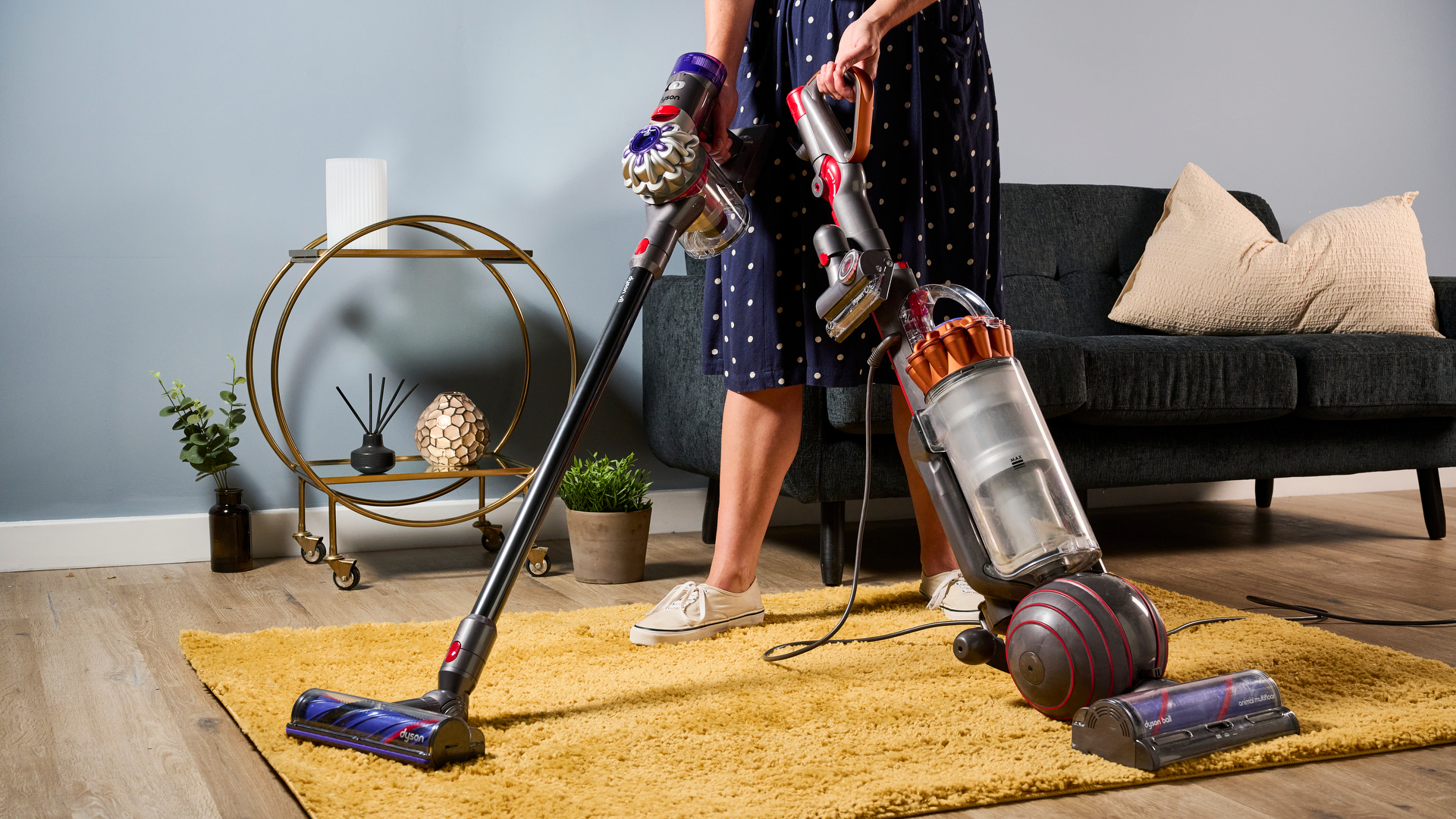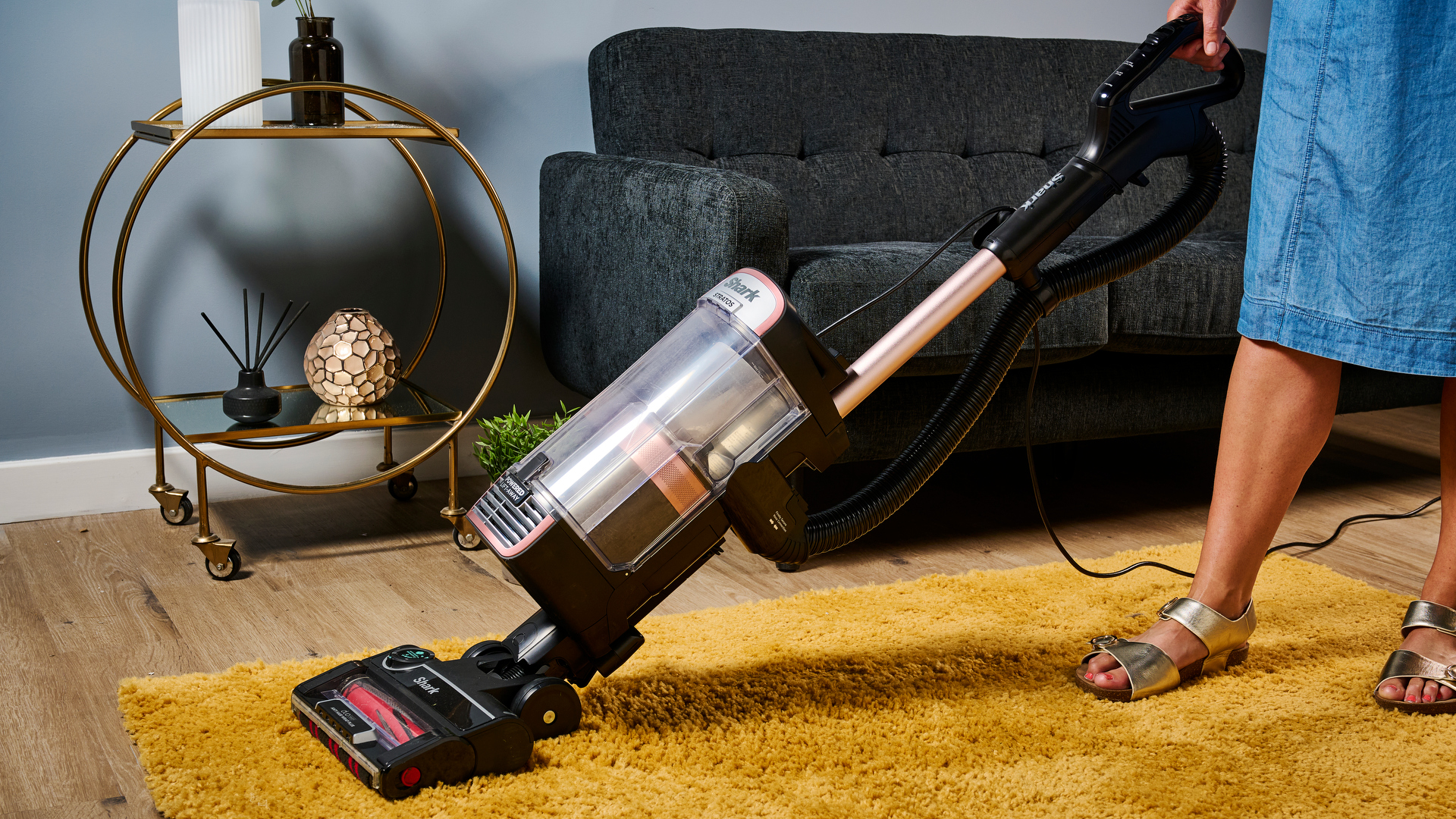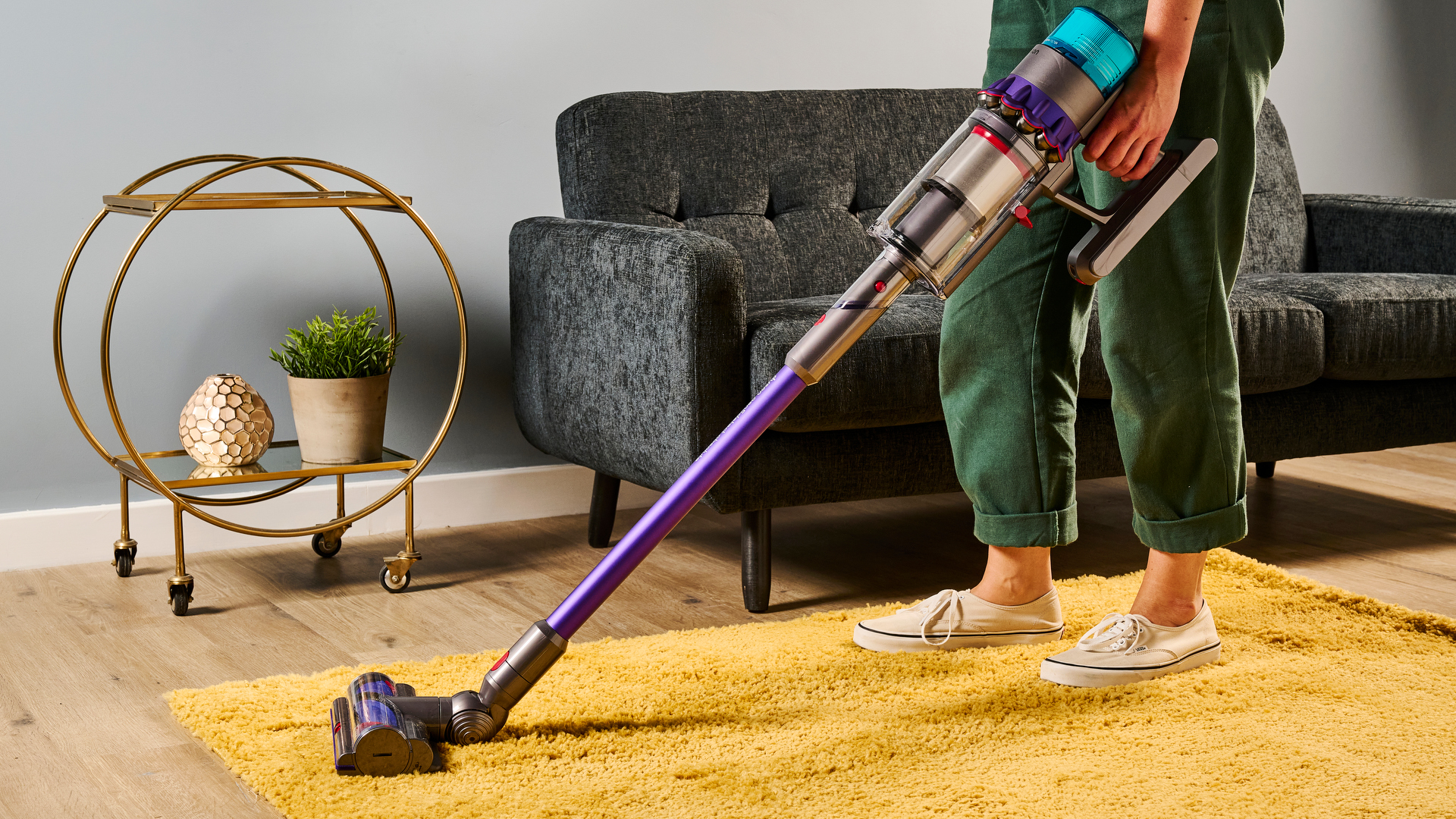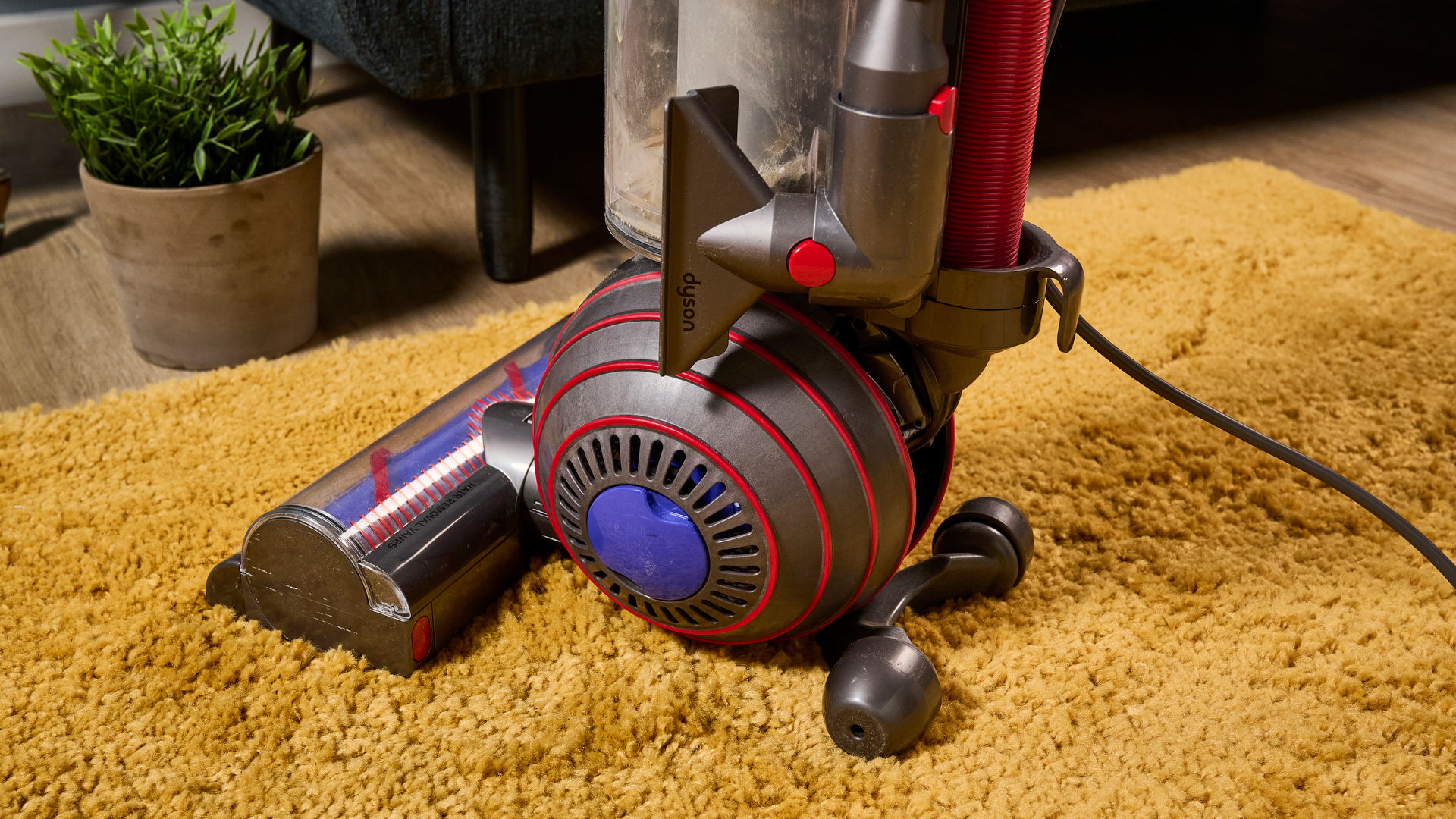
When it comes to choosing the best vacuum cleaner, one of the biggest decisions you'll face is whether to opt for a corded or cordless model. But frustratingly, there's no one-size-fits-all solution.
Both types of vacuum cleaner have their pros and cons. So it's largely a matter of weighing up the key factors and deciding which is most important to you. Things to consider will include your home's size, floor types, cleaning habits and how much you have to spend.
The good news is that whichever type you choose, today's vacuum cleaners offer impressive performance to keep your home clean and healthy. In this article, we'll look at each of the main differences between the best cordless vacuums and the best corded vacuums, and help you make an informed choice.
1. Cleaning power and suction
Traditionally, corded vacuums have had the edge when it comes to raw cleaning power. Using mains electricity allows them to utilize more powerful motors, resulting in stronger suction. This makes them particularly effective for deep-cleaning carpets and tackling stubborn dirt and debris.
For example, the Shark Stratos Upright Vacuum (AZ913UKT) demonstrates the impressive power of corded models today. Its DuoClean floorhead, featuring two motorized brushrolls, provides excellent performance across various floor types. The vacuum's powerful suction makes it particularly effective for homes with mostly carpeted floors or those dealing with deep-set dirt.

Having said that, cordless technology has advanced significantly in recent years. Many modern cordless vacuums now offer impressive suction power that can rival their corded counterparts. For example, our reviewer found the Dyson Gen5detect boasts impressive suction power, with an auto mode that adjusts based on floor type and dirt levels. On the whole, though, if you have a home with mostly carpets or frequently deal with deep-set dirt, a corded vacuum will still probably be the better choice for consistent, powerful cleaning.
However, do consider if you need all that suction. If your home has mostly hard floors, and/or doesn't deal with lots of foot traffic, then a cordless model might offer plenty of power for your needs. The Shark Detect Pro Cordless doesn't have the most outright power, but it's still an excellent choice for most homes.
2. Battery life and runtime
The most obvious limitation of cordless vacuums is that you can only use them until their battery runs out, and you have to remember to charge them after you've finished cleaning.
Most cordless models offer anywhere from 15 to 60 minutes of cleaning time on a single charge, depending on the power setting you switch them to. For instance, the Dyson V11 provides up to 60 minutes of runtime in Eco Mode, with a helpful LCD display that shows exactly how much cleaning time is left. Bump up to the Gen5detect, and that increases to 70 minutes, although here is a payoff in terms of weight – that model is heavy for a cordless stick vacuum.

If you have a larger home or prefer to do all your cleaning in one go, though, you might find the limited runtime of cordless vacuums frustrating. Corded vacuums, in contrast, can run indefinitely as long as they're plugged in, allowing for uninterrupted cleaning sessions. That makes this type of cleaner ideal for thorough, whole-house cleaning, without the worry of battery life.
3. Convenience and maneuverability
While corded vacuums never run out of power, they are limited by the length of the power cable, and those cables can trip you up if you're not careful. In contrast, a cordless vacuum offers unparalleled freedom of movement. You can easily move it from room to room, up and down the stairs, or even outside to clean your car, without worrying about finding a nearby power outlet.
Cordless vacuums are also typically lighter and more compact than their corded counterparts. The Shark WandVac System, for example, is a particularly lightweight option that can easily convert between a handheld and floor vacuum for versatile cleaning. On the flipside, corded vacuums often have larger dust capacities, meaning you won't need to empty them as frequently.
4. Versatility
Both corded and cordless vacuums can come with a variety of attachments for different cleaning tasks. However, cordless models, especially stick vacuums, often have an edge in terms of versatility. Typically, many convert into handheld units for cleaning furniture, car interiors, or other hard-to-reach areas, so you won't need to invest in a separate handheld vacuum.
5. Cost
Cordless vacuums tend to be more expensive than comparable corded models due to the cost of battery technology. For example, the Dyson Gen5detect is a high-end cordless with a premium price tag of $949.99 / £769.99 / AU$1,549. In contrast, the latest Dyson corded upright, the Dyson Ball Animal 3, has a list price of $499.99 / £279.99 / AU$599.
It's worth noting, too, that cordless vacuums may have additional long-term costs, such as replacing batteries over time. That said, there are more budget-friendly cordless options available. The Roidmi S2 offers good performance at a more accessible price point at $359 / £419.

6. Environmental impact
Cordless vacuums rely on batteries, which have environmental implications both in their production and disposal. Some models, like the Halo Capsule X Pet Max, use compostable dust bags, which can help mitigate environmental concerns. Corded vacuums avoid these issues but may consume more energy over their lifetime due to their more powerful motors.
Corded vs cordless vacuum: which should I buy?
Ultimately, the choice between corded and cordless comes down to your specific needs. On balance, you'll usually wish to choose a corded vacuum if:
- You have a larger home.
- You prefer uninterrupted, powerful cleaning sessions.
- You have mostly carpeted floors.
- You're on a tighter budget.
Meanwhile, you'll probably prefer a cordless vacuum if:
- You value convenience and easy maneuverability.
- You have a smaller home or frequently clean small areas.
- You want a versatile cleaner for various surfaces and spaces.
- You're willing to pay more for the latest tech.







